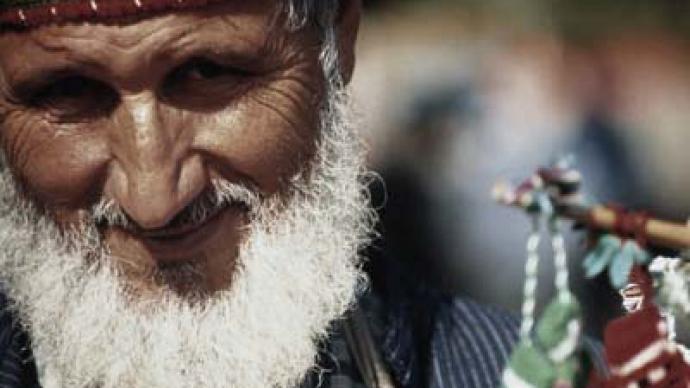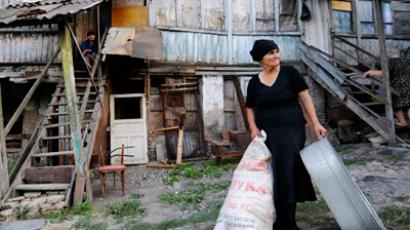Meskhetian Turks - cut off from their motherland

An entire people cannot make their way back to the land of their ancestors. RT’s Madina Kochenova has found out why Meskhetian Turks want to go back to Georgia and how they are treated there.
Meskhetian Turks are often described as the twice deported people. They were forcibly displaced first from Georgia and then from Uzbekistan. And after almost 70 years of nomadic existence they only hope that one day they will be able to get back to their native land. It was the Stalin regime which deported more than 90,000 Meskhetian Turks to Central Asia in 1944, but they had to flee again after violent ethnic riots in Uzbekistan in 1989.Most of them now live in Azerbaijan and Turkey as well as in Russia and the US. “All we want is to come back to our land, to Meskhetia in Georgia. That’s what we’ve been fighting for and dreaming of for many years,” says Ampashulin Bektash, head of the organization Batan in the Kabardino-Balkaria republic.There are some 400,000 people with this dream. Spread across the globe, they have been left with no homeland. Georgia finally adopted a repatriation law under pressure from the European Council in 2007. But even four years on, the law does not appear to have changed anything. “They know Georgia isn’t the richest or the most stable of countries,” says Emil Adelkhanov, a human rights activist. “That’s the first thing. Secondly, they seem to realize they are not very welcome here. To come to an entirely new country, to go into the unknown… not everyone is capable of that.”“The law came into power but it was surrounded by so many bureaucratic barriers. We had to collect so many documents that it made coming back almost impossible,” says Ampashulin Bektash.The chairman of the world organization of Meskhetian Turks, Suleyman Barbakadze, has traveled to Georgia repeatedly in the fight to make the repatriation law more effective. But last year, Suleyman was arrested in Georgia and imprisoned for 11 years. He was accused of forging documents and fraud. But his supporters say the charges were trumped up. Mavludakhan Barbakadze, Suleyman’ wife, believes there is no proof that he is guilty. “I’m sure he was arrested for political or nationalistic reasons. We can’t do anything to help him.”For now, most Meskhetian Turks continue to live a life far from where they consider home. And in distant lands, their hopes of a return still seem equally remote.













